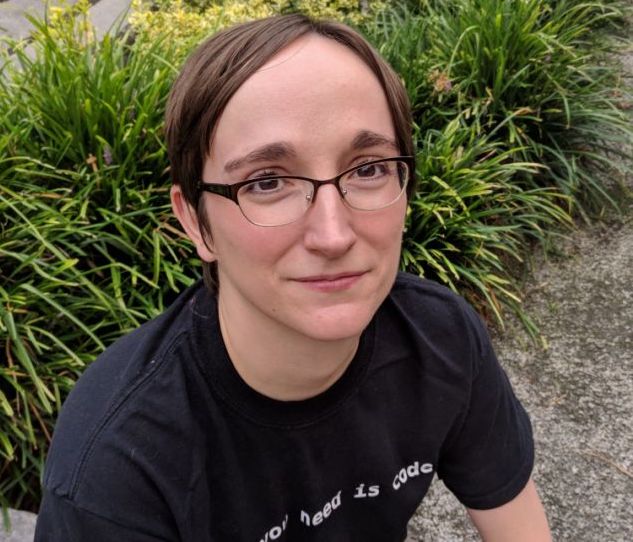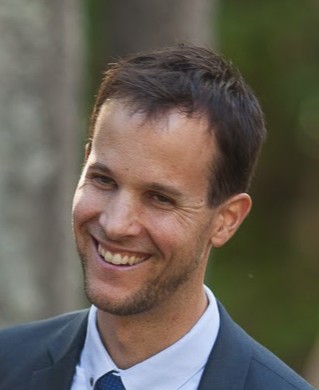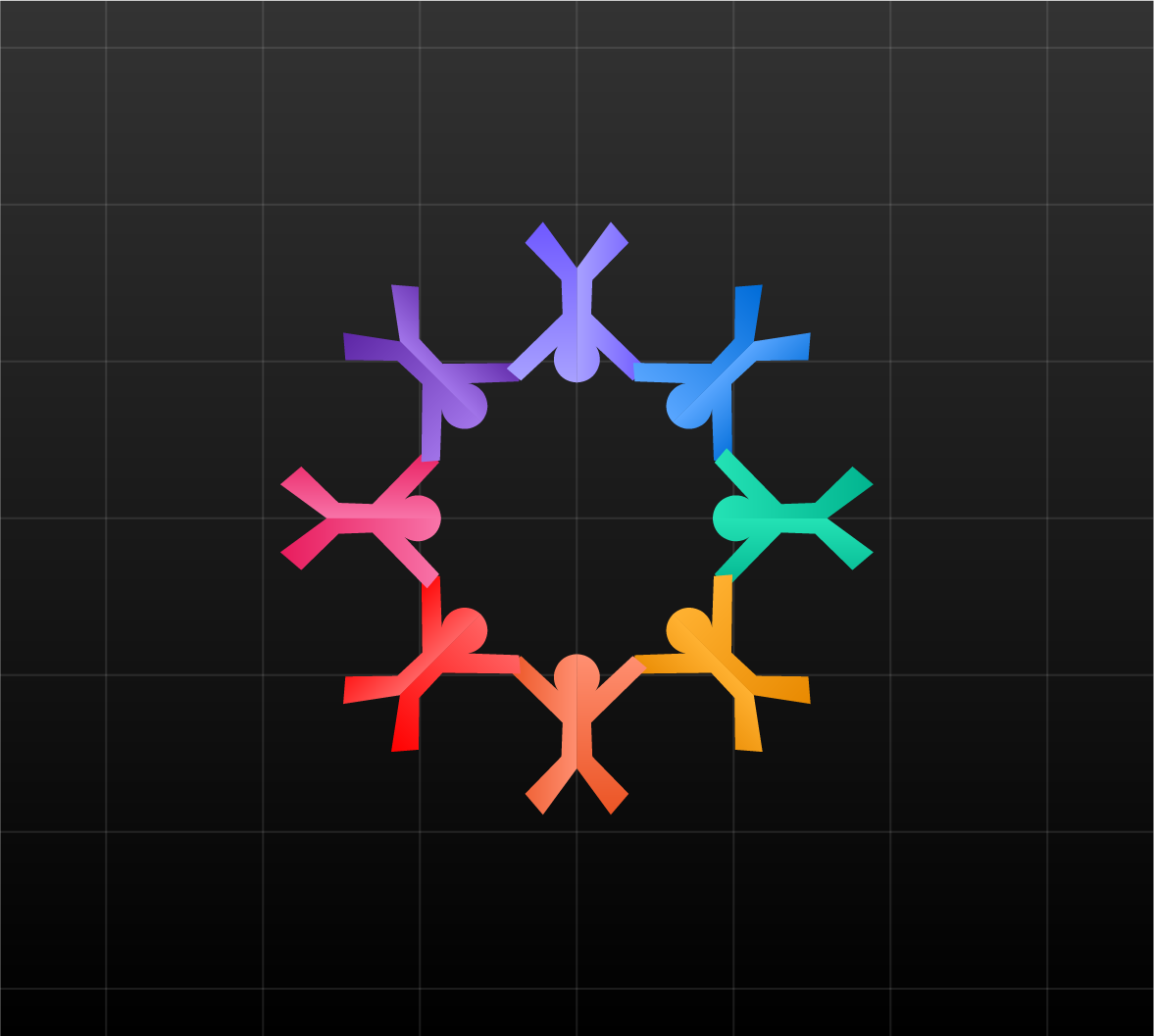When I was growing up, I really wanted to become a programmer, but I assumed that the only way to do that was to go straight to college after high school and get a four-year degree in Computer Science. I was very wrong, but I wasn't alone in thinking that.
My colleague Kim Maida, Auth0’s Community and Technical Content Manager, recently asked a simple question about non-traditional backgrounds on Twitter that went viral:
“Anyone in tech come from a non-traditional background? I have a degree in computery-stuff, but before that, I got a degree in Animal Behavior & Neurobiology. I love hearing about other non-traditional backgrounds! If you are in tech and came from different origins, please share! — Kim Maida 🦖🥑 (@KimMaida)”
Tweet This
Anyone in tech come from a non-traditional background?
I have a degree in computery-stuff, but before that, I got a degree in Animal Behavior & Neurobiology. I love hearing about other non-traditional backgrounds! If you are in tech and came from different origins, please share!— Kim Maida 🦖🥑 (@KimMaida) February 14, 2019
As a self-taught developer with a background in liberal arts and finance, I loved reading all of the replies. Here are some of my favorites:
Jen Looper, senior dev at Progress and founder of Vue Vixens:
“Ph.D. in Medieval French Literature. Use it every day. 😍 — Jen Looper (@jenlooper)”
Tweet This
Ph.D. in Medieval French Literature. Use it every day. 😍 — Jen Looper (@jenlooper) February 14, 2019
This exchange between Ayşegül Yönet at Microsoft and Ben Lesh, Angular and RxJS core team member from Google:
“Yay! I was an Illustration major that took exactly zero computer-related courses. All of my classes were in fine art and (non-computer aided) graphic design. — Ben Lesh 🧢🏋️♂️💻🎨 (@BenLesh)”
Tweet This
Yay! I was an Illustration major that took exactly zero computer-related courses. All of my classes were in fine art and (non-computer aided) graphic design.
— Ben Lesh 🧢🏋️♂️💻🎨 (@BenLesh) February 15, 2019
Rob Wormald, Angular core team member at Google:
“I worked at Best Buy, and then as a Mac Genius before I got anywhere near code at age 26. — Rob Wormald (@robwormald)”
Tweet This
I worked at Best Buy, and then as a Mac Genius before I got anywhere near code at age 26.
— Rob Wormald (@robwormald) February 15, 2019
Ward Bell, President of IdeaBlade and Fashion Icon:
“Does Sociology count as non-traditional? Never took a CS course ever. But these days I think I’m more likely to approach the field intellectually than the average developer I meet. — Ward Bell (@wardbell)”
Tweet This
Does Sociology count as non-traditional? Never took a CS course ever. But these days I think I’m more likely to approach the field intellectually than the average developer I meet.
— Ward Bell (@wardbell) February 15, 2019
And possibly my favorite story from Elisabete Baker:
“In my early twenties I worked as a deckhand on tallships and later trained/worked as a wooden boatbuilder. When I finally went to college, I double-majored in Biology and Computer Science. I love my unique background and benefit from it now as an engineer. 💜 — elisabete.codes (@Elisabete)”
Tweet This
In my early twenties I worked as a deckhand on tallships and later trained/worked as a wooden boatbuilder.
When I finally went to college, I double-majored in Biology and Computer Science.
I love my unique background and benefit from it now as an engineer. 💜 pic.twitter.com/3NbCjE0YP4— elisabete.codes (@Elisabete) February 15, 2019
These replies to Kim's tweet are fun and encouraging, but are they indicative of a wider trend?
The Need for Non-Traditional Developers
Kim’s not the only one to have struck this chord with people. There’s a growing trend of being vocal about non-traditional backgrounds in tech. For example, Dr. Donna Malayeri had a huge response to this tweet:
“👏 You don't need a formal degree to succeed in tech. <br><br>👏 You don't need a CS degree to be a great product manager. 👏 Degrees are not magic! Hard work, intellectual curiosity, and good teamwork win every time. Sincerely, someone with a fancy degree. 💫 — Dr. Donna Malayeri comma PhD (@lindydonna)”
Tweet This
👏 You don't need a formal degree to succeed in tech.
👏 You don't need a CS degree to be a great product manager.
👏 Degrees are not magic! Hard work, intellectual curiosity, and good teamwork win every time.
Sincerely, someone with a fancy degree. 💫— Dr. Donna Malayeri comma PhD (@lindydonna) February 14, 2019
As a result, she followed up with an experiment:
“To prove a point: <br><br>Please RT if you don't have a CS degree and you have a job in tech. — Dr. Donna Malayeri comma PhD (@lindydonna)”
Tweet This
To prove a point:
Please RT if you don't have a CS degree and you have a job in tech. https://t.co/AuGi4yxM5Q— Dr. Donna Malayeri comma PhD (@lindydonna) February 14, 2019
Finally, Ashley McNamara from Microsoft shared her own experience as a self-taught developer:
“Five years ago a well known person in the tech community & author of books you've probably read, spoke to a group of women just learning to code. <br><br>She told us that none of us would succeed in tech without a CS degree and all I want to say is, 'Thank you for under estimating me' — Ashley McNamara (@ashleymcnamara)”
Tweet This
Five years ago a well known person in the tech community & author of books you've probably read, spoke to a group of women just learning to code.
She told us that none of us would succeed in tech without a CS degree and all I want to say is, 'Thank you for under estimating me'— Ashley McNamara (@ashleymcnamara) February 28, 2019
The thousands of engagements with these threads are indicative of the growing gap between available tech jobs and people graduating with computer science degrees. In a 2013 blog post by the Obama administration called Computer Science is for Everyone!, the The Bureau of Labor Statistics projected that by 2020 there will be 1.4 million computer-science-related jobs available but only 400,000 computer science graduates.
“According to the Bureau of Labor Statistics, by 2020 there will be 1.4 million computer-science-related jobs available but only 400,000 computer science graduates.”
Tweet This
In 2015, The Atlas published an interesting chart showing college computer science graduates compared to open computing jobs in the US:
We're even ahead of schedule for the 2013 prediction. In 2017, there were already 1.3 million software jobs, according to Trilogy Education Services. Code.org asserts that 58% of all new jobs in STEM are in computing, but only 10% of STEM graduates are in Computer Science. Finally, the Occupational Outlook Handbook from the U.S. Bureau of Labor Statistics states that employment of software developers is projected to grow 24 percent from 2016 to 2026.
Non-Traditional Backgrounds at Auth0
When I started college at the University of Florida, I was originally a computer science major. I had always wanted to learn to code and I assumed that college was the only way to learn. Back then, there was no YouTube, no Codecademy, no Treehouse, and no Pluralsight. There was also no Twitter to tell me about what it meant to be “self-taught” or even what a “web developer” was. So, I trundled off to college hoping that a degree in computer science was the answer.
Somewhere in between finishing up Calculus II and signing up for Differential Equations during my freshman year, my hope began to fade. According to the computer science curriculum, I wasn’t even slated to take a computer class until my junior year. Until then, it was math, math, more math, and some physics for good measure. I decided to switch to liberal arts, where I eventually got a degree in religion (a hybrid of history and sociology). Along the way, I continued to work my way through tutorials on PHP, HTML, and CSS to do a little bit of web design as a hobby. I was convinced, though, that since I had given up on formal computer science education, my dreams of becoming a “professional programmer” were dead.
I couldn't have been more wrong. After five years in financial sales and operations, I longed to learn and create again. With the help of some coworkers in the software department of the brokerage I worked for, I started to learn C# and JavaScript. Eventually, I got my first professional programming job and the rest is history!
My story isn't unique at Auth0, though. Let's hear from some of my amazing colleagues about their backgrounds and how they got into tech.












Conclusion (and Some Inspiration)
It's clear that a formal degree in computer science is no longer the only path into tech. If you're looking at switching to tech and need some inspiration, I've got a few podcast recommendations for you:
- First, check out Breaking Into Startups. They also have a free course called the 5 Step Challenge you can check out.
- Next, Kyle Shevlin has a great podcast called Second Career Devs that features interviews of folks who have changed careers into development. You can catch Auth0 Developer Evangelist Bobby Johnson and myself on there!
- Finally, DevChat.tv has My Angular Story and My JavaScript Story. Not all of the guests have informal backgrounds, but it's always interesting to hear people's stories. Kim Maida and myself have both been on My Angular Story.
“A formal degree in computer science is no longer a requirement to get a job in tech.”
Tweet This
Good luck on your journey and don't forget — we're hiring!
About Auth0
Auth0 by Okta takes a modern approach to customer identity and enables organizations to provide secure access to any application, for any user. Auth0 is a highly customizable platform that is as simple as development teams want, and as flexible as they need. Safeguarding billions of login transactions each month, Auth0 delivers convenience, privacy, and security so customers can focus on innovation. For more information, visit https://auth0.com.
About the author

Sam Julien
Director of Developer Relations

